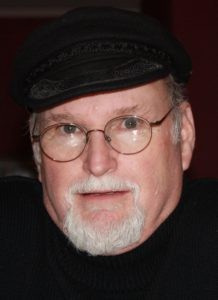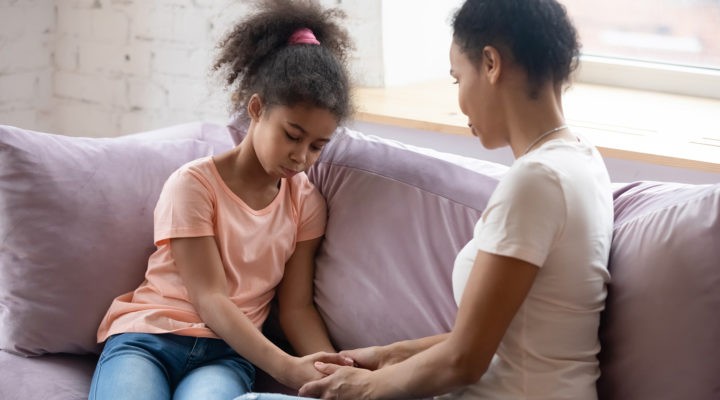Diane Wesh first fled the cultural racism of America by what she called “solo travel,” which was getting away from the forces of racism she experienced every day of her remembered life.
This is part of her story: “Being Black in America impacted my stress level. The pressures under which I had to live were inhumane: Hands out of your pocket. Don’t wear a hoodie. No jogging during the day. No jogging at night. Don’t walk into a store as a group, they’ll perceive you as a threat. Hold on to your receipt. Make eye contact. Smile, always be polite. Know the law. Don’t stay out late. Come home, alive.”

Michael Chancellor
She reports her initial travels were short but refreshing. However, returning to America where nothing had changed finally helped her make the decision to emigrate to New Zealand. Her story was written up in the HuffPost, and I could not read it without some sense of the anger and bitterness from her growing up.
Her conclusion was that the United States, for her, was a hostile nation toward African Americans.
I reprinted a small portion of her story here because I have heard it before. In 2019, Anna and I were doing clinical training for being Licensed Professional Counselor-Supervisors. I was doing the refresher track while Anna was going through the whole training. Basically, being a “supervisor” is participating in the training of the next generation of therapists once they leave the classroom. It can be fun, but is serious work.
In one class session, an African American LPC remarked, “When my daughter turned 12, I sat her down and had the talk.” We all chimed in, affirming the need to talk to our children about sex around that time.
She shook her head, “No! Not that talk, the other talk African-American mothers have with their children.”
We were puzzled but she willingly explained. “The talk I am speaking about happens when your child is old enough to start hanging out with their friends. A good mother sits them down and tells them, ‘Don’t go into a store as a group. Don’t leave the checkout counter without a sales slip and whatever you bought in a bag from that store.’”
At first I was shocked and then saddened.
“It has taken a lifetime to begin to learn about what life has been like for African Americans.”
Reading Wesh’s experience growing up in the United States was so very different from mine. More than that, it has taken a lifetime to begin to learn about what life has been like for African Americans. I thought about my relationships growing up, in college, then as a pastor, then the mental health department at Polunsky Prison. There was never a hint of what I later came to understand. Even when I probed or questioned, or believed I was attempting to learn, I was left ignorant. I met a wall of silence.
Now, as the cracks are opening and experiences are becoming available through print and news, I understand the lack of sharing or the experience of superficial relationships with Black colleagues. Whites could not be trusted. It was nothing personal, it was just the accumulation of generations of experience.
I didn’t understand until recently why Blacks friends and acquaintances would not talk to me about what Diane Wesh wrote about so angrily and pointedly. Until now, Wesh did not feel safe enough to express what she was experiencing growing up Black. Now, she writes from the security of New Zealand. To me, that does not diminish what she writes.
White America has culturally bullied African Americans, Latinos and Native Americans. In some ways, that bullying has been aimed at women as well.
“Bullying whether on the school yard or the street, is always about power and control.”
What does that mean, practically? First, bullying whether on the school yard or the street, is always about power and control. That was certainly true during slavery and sadly reintroduced in Jim Crow laws. There is something sinister about exerting power and control over people, bending their will to the sources of power and the sources of control always requiring subservience.
But bullying is more than that. It attempts to isolate the victim from the support of the crowd. In our culture it means practically targeting when one is not in their “group,” or uses an overwhelming number or a gang.
Bullying attempts to demean the person as somehow less valuable than others in the culture. Bullying aims for humiliation and shaming the person, not for what they have done, but for who they are. Guilt is most often associated with behavior; shame is focused on who one is.
Cultural bullying is aiming at the core of who the person, the community, the race is. The extent of bullying is seen daily in the therapy room with children who are being bullied and become depressed or suicidal. Just expand the issues in the school to the culture and you see the power up against people of color, sexual minorities and women.
The extreme of bullying is hanging. According to the Tuskegee Institute, “4,743 people were lynched between 1882 and 1968 in the United States, including 3,446 African Americans and 1,297 whites. More than 73% of lynchings in the post–Civil War period occurred in the Southern states. According to the Equal Justice Initiative, 4,084 African Americans were lynched between 1877 and 1950 in the South.
To be clear, this kind of bullying is not unique to America or African Americans.
Working with our Cooperative Baptist Fellowship missionaries ministering to Albanians exposed Anna and me to this same cultural bullying toward the Albanian refugees when they left Albania. Universally, in different parts of the world, some are identified, bullied, shamed and diminished because of some nebulous criterion within the power structure of that nation.
I grew up hearing about the “untouchables” of India. They were the outcasts in the Indian society.
Look over this list of how untouchables are treated and see if any of these actions sound familiar:
- Prohibition from eating with other members.
- Provision of separate cups in village tea stalls.
- Separate seating arrangements and utensils in restaurants.
- Segregation in seating and food arrangements at village functions and festivals.
- Prohibition from entering places of public worship.
- Prohibition from wearing sandals or holding umbrellas in front of higher caste members.
- Prohibition from entering other caste homes.
- Prohibition from using common village paths.
- Separate burial/cremation grounds.
- Prohibition from accessing common/public properties and resources (wells, ponds, temples, etc.).
- Segregation (separate seating area) of children in schools.
- Bonded labor.
- Social boycotts by other castes for refusing to perform their “duties.”
“Even sadder is that Christian leadership in America provided the ‘theology’ for our racism, discrimination and oppression.”
The fact that such behavior is not unique to the United States does nothing to lessen the wrongness of such behavior, whether toward one person or a people group. It is even more despicable when it has existed in America before the Declaration of Independence and all that followed. Even sadder is that Christian leadership in America provided the “theology” for our racism, discrimination and oppression.
One of the tidbits of knowledge I learned from world geography was that India had a caste system where some at the bottom of the system were called “untouchables.” What I did not learn until these last few years was that same system existed from the earliest days in America. While some of the bullying has been curtailed by law, too much remains, especially in the church in America as shared by the experience of Diane Wesh.
It is way past time for us to see, listen, repent, stop the cultural bullying, and move forward with all who inhabit this land God has entrusted to us all.
Wash your hands, wear your mask for others, mind the gap, and be kind and open-hearted to all.
Michael Chancellor served 33 years as pastor of four Baptist churches in Texas, seven years as a mental health manager in a maximum-security Texas prison and now is a therapist in private practice in Round Rock, Texas.
Related articles:
You cannot follow Jesus and endorse racism. Period. | Mark Wingfield
‘We are Cain’: Owning up to the reality of racism in America | Robert P. Jones
Let’s stop covering up the enablers of racism in America | Mark Wingfield
A grief unobserved: Why aren’t we talking about this at church? | Tamice Namae Spencer


